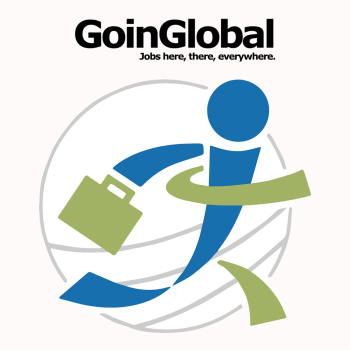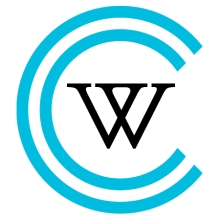Susan L. Wagner ’82 Career Advising Program
The Susan L. Wagner ’82 Career Advising Program
What do you want to be when you graduate? Rest assured that most Wellesley students are unsure about their career paths and even those that feel certain often do — and should! — change their course. When beginning your career journey, it can be tempting to imagine that it will be one straight line. However, as countless alums will tell you, that’s not the way it works — and that’s a good thing! As the Bureau of Labor Statistics reports, the average worker will have 12-15 jobs in 5-7 different career fields in her lifetime.
Career Exploration
Regardless of what year you are at Wellesley, we are here to help you explore potential career paths. Every student is matched with an Advisor for Career Exploration (ACE), who is available for conversations about your values, strengths, and interests. Your ACE will provide the mentorship, tools, connections, and space for self-assessment and reflection to identify the paths you want to pursue. Schedule an appointment in Handshake to meet with your ACE as follows:
- First Years & Juniors: Hayley Meredith, ACE for the Class of 2026 & 2028
- Sophomores & Seniors: Ariane Baker, ACE for the Classes of 2025 & 2027
Career Advising for Specific Industries and Fields
You may already have some inclination about what industry or field you might like to work within. You also may still be quite uncertain — and that is both normal and completely okay! You don’t need to know exactly what you want to do to meet with a specialized Career Advisor — simply having curiosity about a field or industry is a great place to begin.
To meet with an industry/field specific Career Advisor, make an appointment in Handshake by selecting “Career, Internship, and Graduate School by Industry/Field.“ If you aren’t sure which Advisor covers your field of interest, email careereducation@wellesley.edu and we’ll point you in the right direction! The categories are broadly encompassing, so no matter what your career interests are, there is an Advisor who can work with you to explore the fields you are considering.

Sign up for Industry newsletters by filling out your Career Interest profile in Handshake. You’ll receive advice specifically related to the industries of your interest, along with highlighted events, resources, jobs, internships, and fellowship opportunities in your field of interest. Subscribing to multiple newsletters is a great way to explore career options!

Career Essentials: Resumes, Cover Letters, Interviews, & More!
Through the Career Essentials workshop series, you will develop skills and the foundational knowledge necessary to navigate career development. Learn about resumes, cover letters, interviewing, informational interviewing, negotiation, and personal statements.
Recruiting Timelines for Specific Industries and Fields
Many industries have different recruiting schedules—learn about timelines and career paths, and explore your interests with the help of our industry/field specific Career Advisors, and through the drop-downs below!
Career Advisors

Embark: First Year Career Retreat
Embark — a retreat for all interested first-year students — is a free weekend-long immersive program designed to equip you with a toolkit to begin your career exploration. Join us to connect with Career Education, discover how to identify and utilize your values and strengths through our assessments and activities, hear career stories from your Wellesley sibs, and learn about the variety of opportunities that are available to you as a Wellesley student, like funded internships, study abroad, and research.
Peer Career Mentors

Explore Employment Around the World with GoinGlobal
GoinGlobal is the leading provider of both country-specific and USA city-specific career and employment information. Our unlimited access subscription database features 38 Country Career Guides, 53 City Career Guides for the United States and Canada, corporate profiles and more than 16 million internship and job listings within the USA and around the world.
Navigating the Job Search: The 4 Step Model

The four steps in this resource will help keep you focused and productive in your search. You should plan on revisiting each step as your knowledge and understanding of positions and industries grow. Each step below is outlined without a specific industry or position in mind. It is best to schedule an appointment with your Advisor for Career Exploration (ACE) or an Industry-specific Career Advisor to customize your process. The questions we have provided at each step are designed to help you reflect on your preparedness and identify what you may need to move forward in the process.
Elisabeth Luce Moore '24 Fellowship at the National Palace Museum in Taipei (seniors & graduates)

This one-year, full-time position is available to Wellesley College graduates, thanks to a long-standing arrangement between the college and the National Palace Museum. Each fellow’s responsibilities and job description will be determined, to some extent, according to the Museum’s current staffing requirements as well as the fellow’s personal background, interests and skills.
Wellesley-Yenching Fellowship at Chung Chi College in Hong Kong (seniors & graduates)

The Wellesley-Yenching Program in cooperation with Chung Chi College in Hong Kong sponsors a fellowship to teach or assist in teaching English at Chung Chi. This one-year fellowship is generally offered on an annual basis to a Wellesley College senior or graduate with the option to extend for a second year. Candidates are first interviewed by the committee at Wellesley College, which then sends on the credentials of its nominee for final approval by Chung Chi College.
Apply in spring semester 2025 for the 2025-26 Fellowship.
Thomas J. Watson Fellowship (rising seniors)

The Thomas J. Watson Fellowship offers graduating seniors a one-year grant for independent study and purposeful travel and exploration outside of the United States, to enhance their capacity for resourcefulness, imagination, openness, and leadership and to foster their humane and effective participation in the world community. Campus deadline typically in August.
Udall Scholarship (sophomores & juniors)

Scholarships for US college sophomores and juniors for public service, leadership, and commitment related to the environment and for Native American and Alaska Native students interested in issues impacting Indian country, including healthcare. Eligible are college sophomores and juniors who are US citizens, nationals, and permanent residents. Campus application deadline typically in early February.
Truman Scholarship (juniors)

The Harry S. Truman Scholarship Foundation supports the graduate education and professional development of outstanding young people committed to public service leadership. This scholarship provides funding toward senior year and graduate school for juniors interested in a career in public service. Campus application deadline typically in November.



















